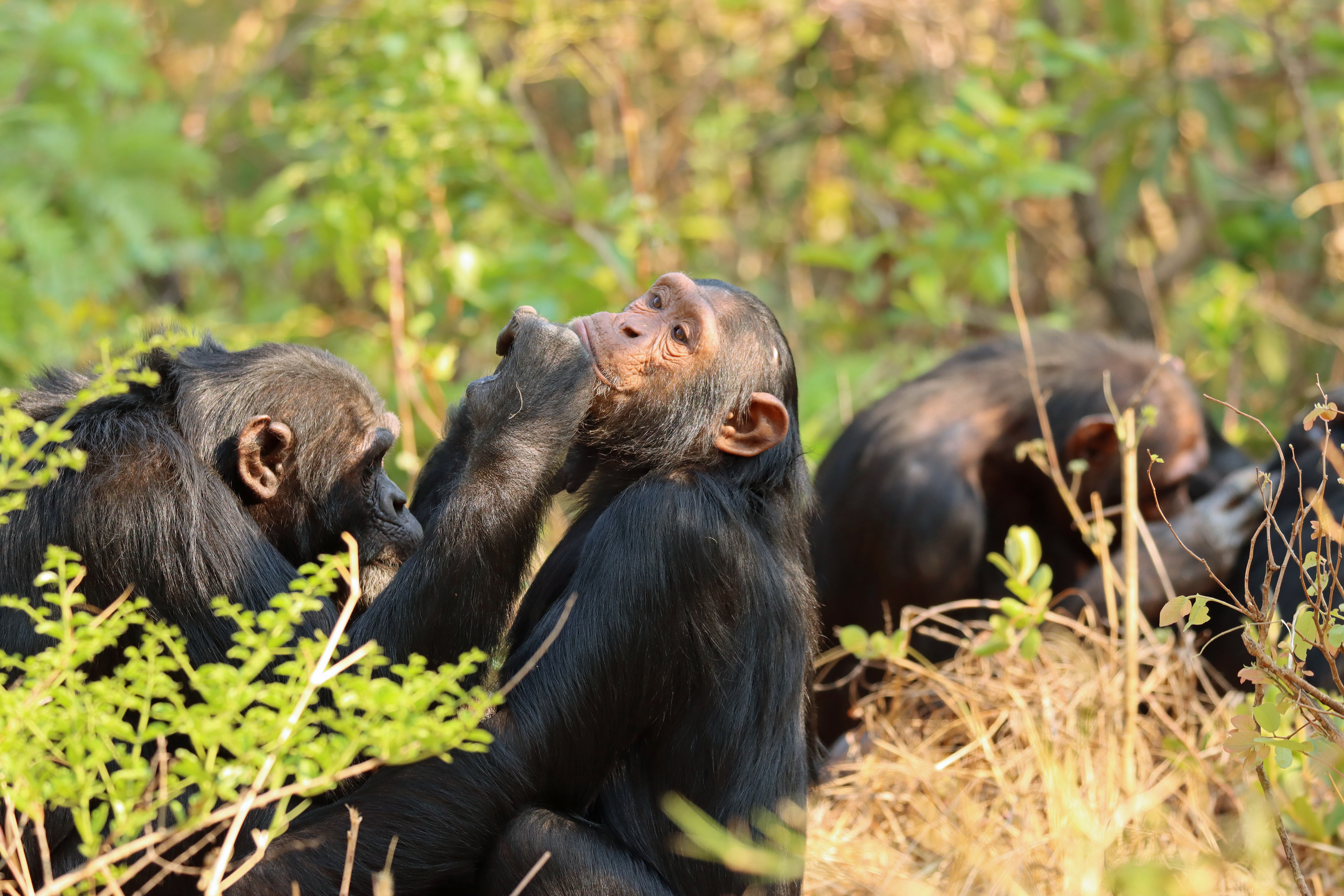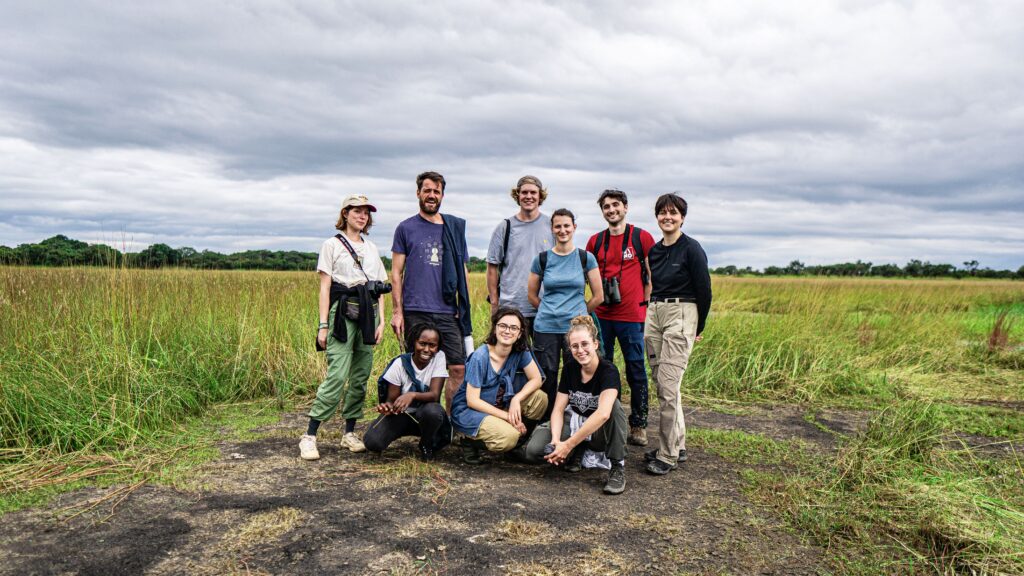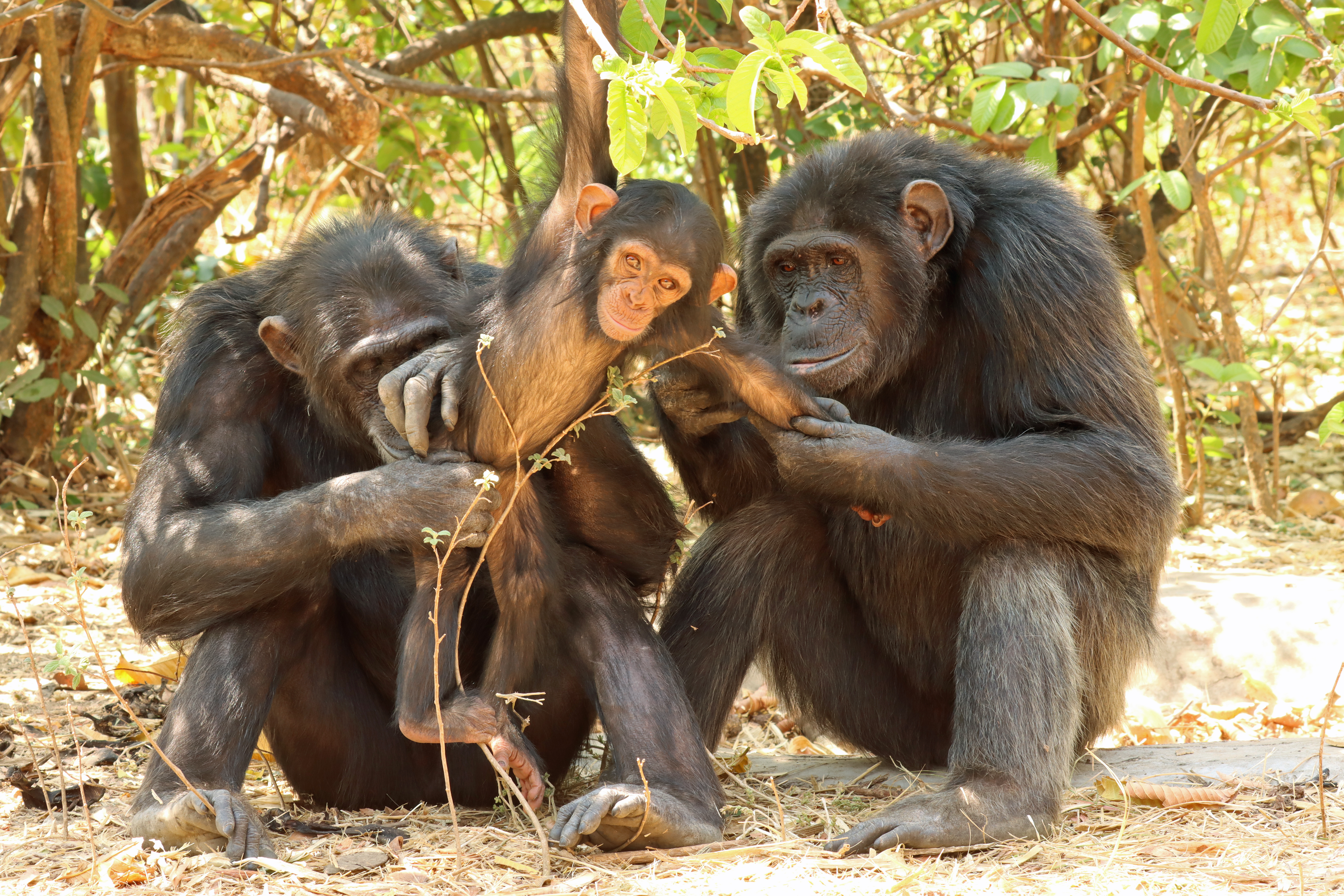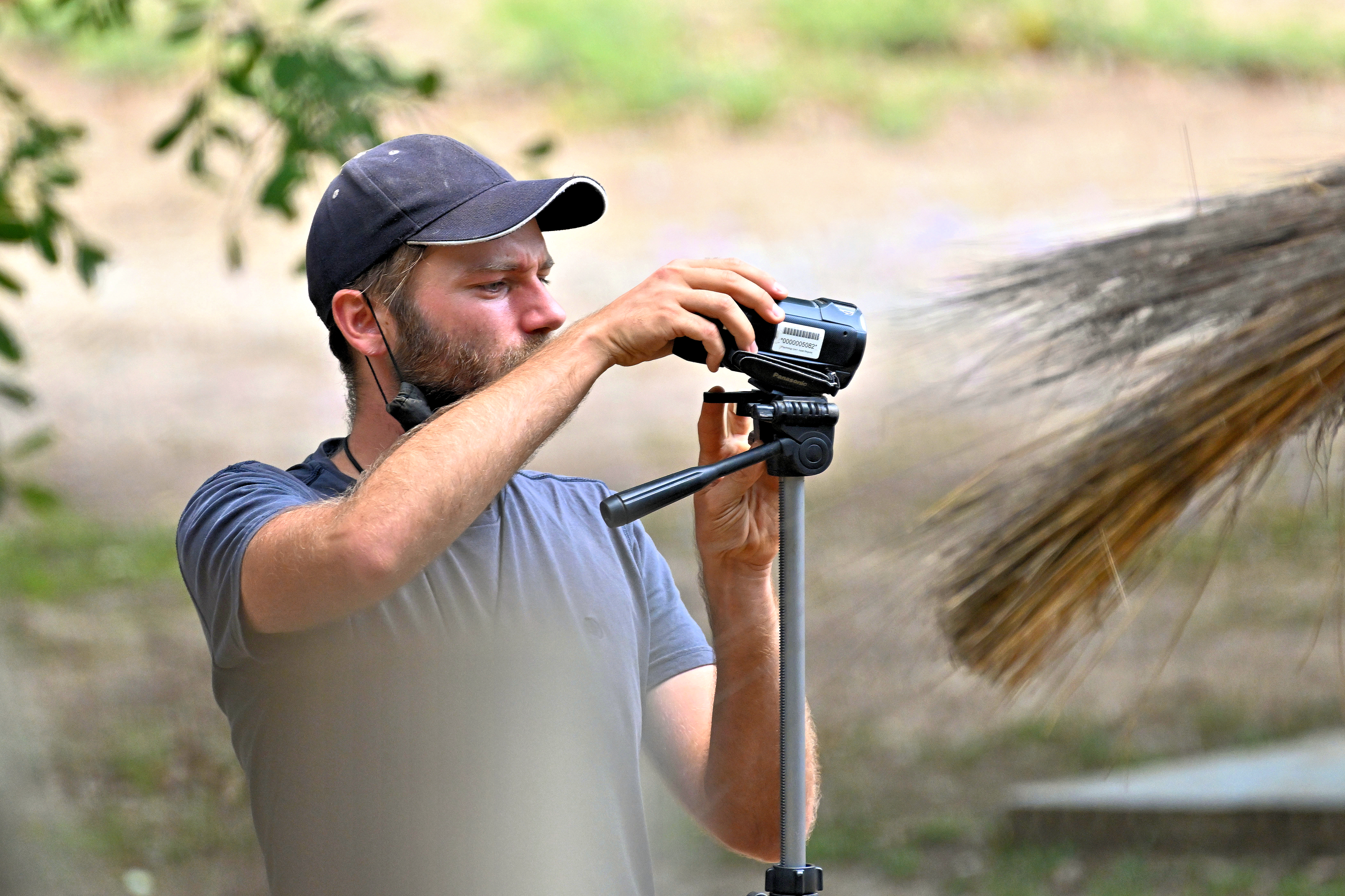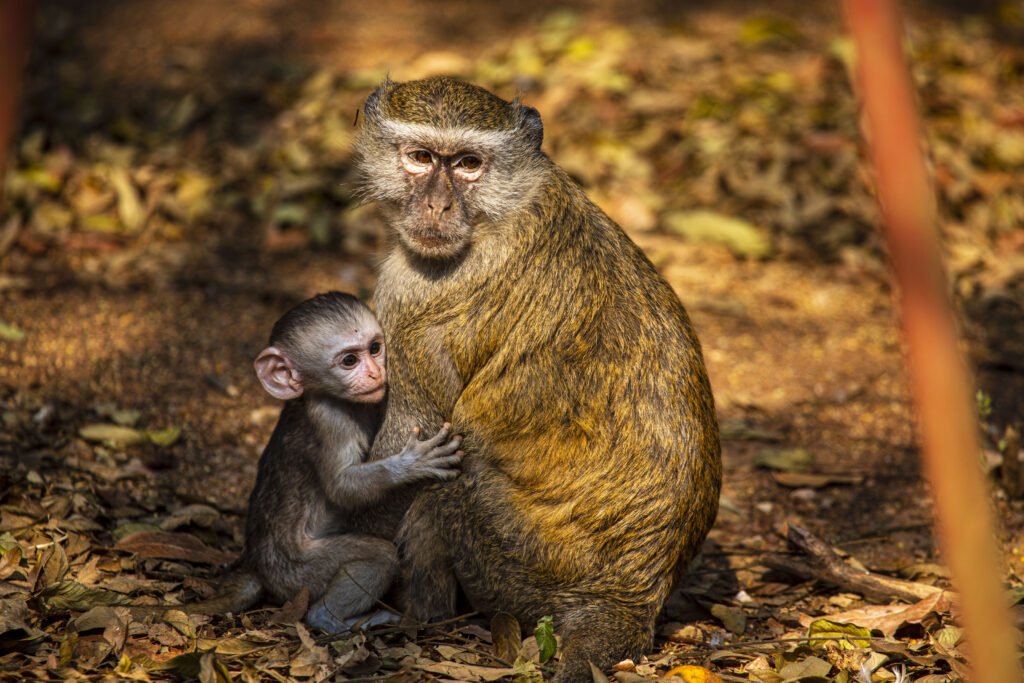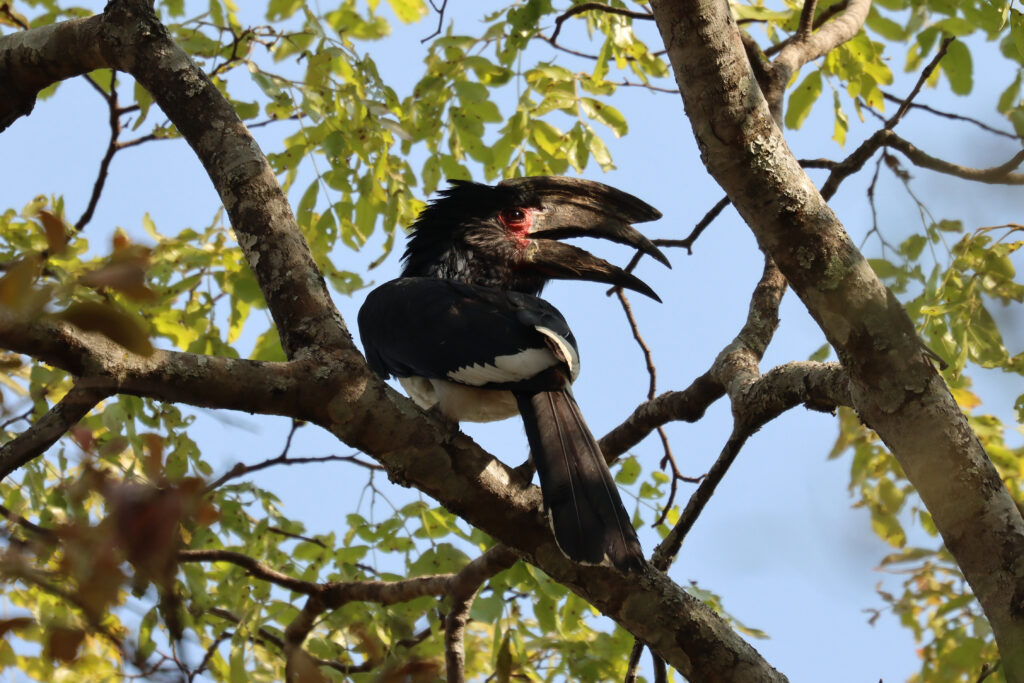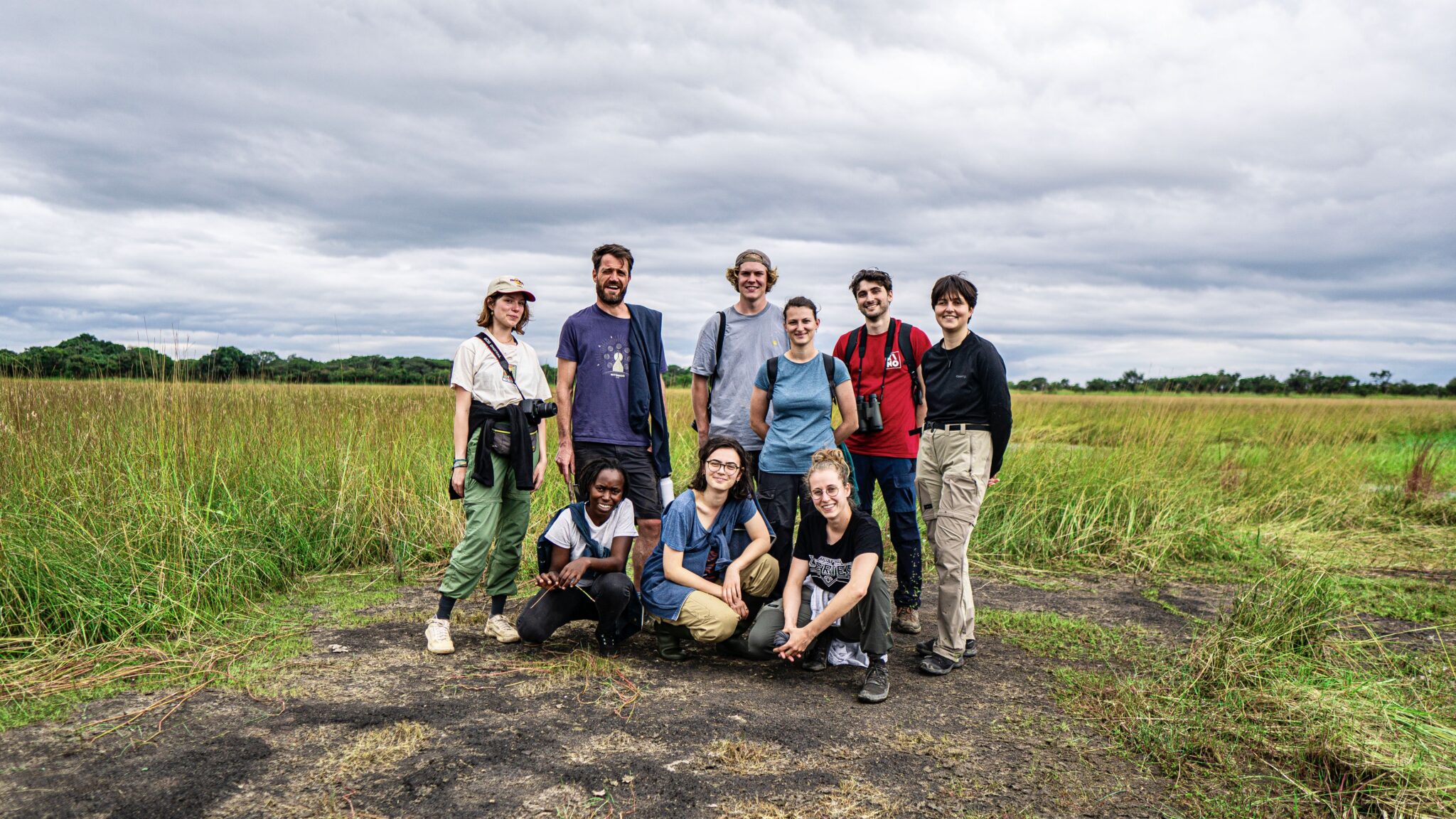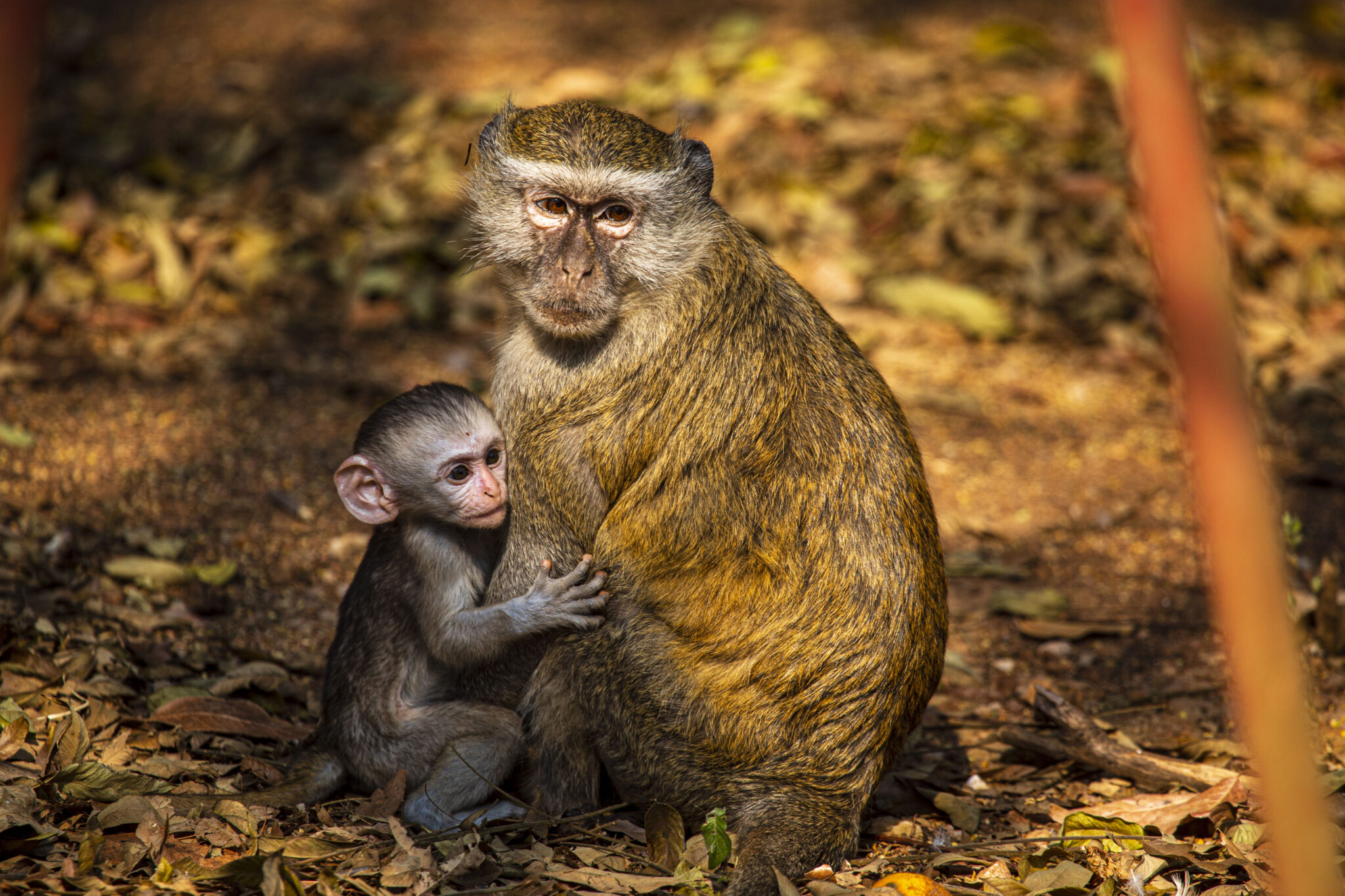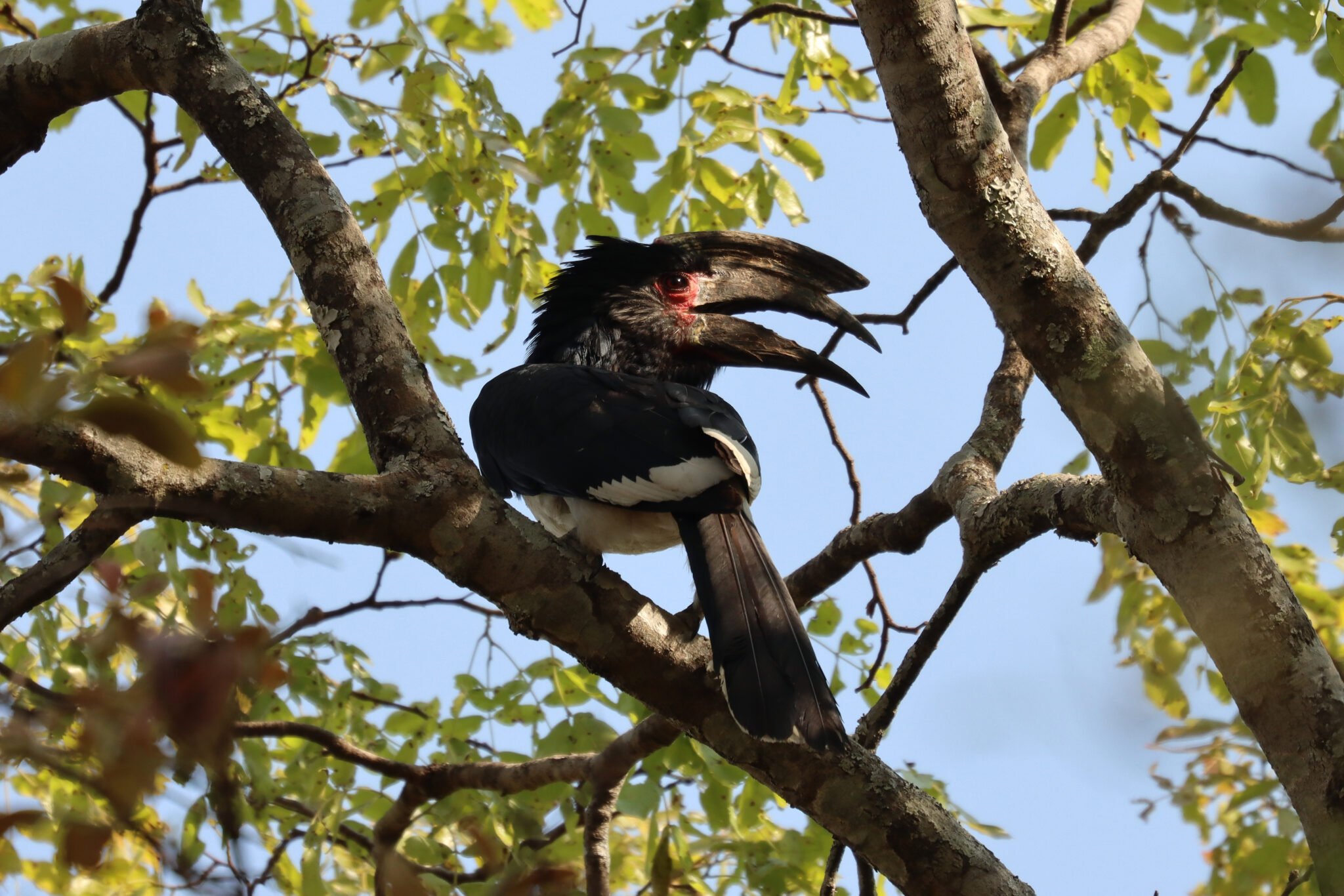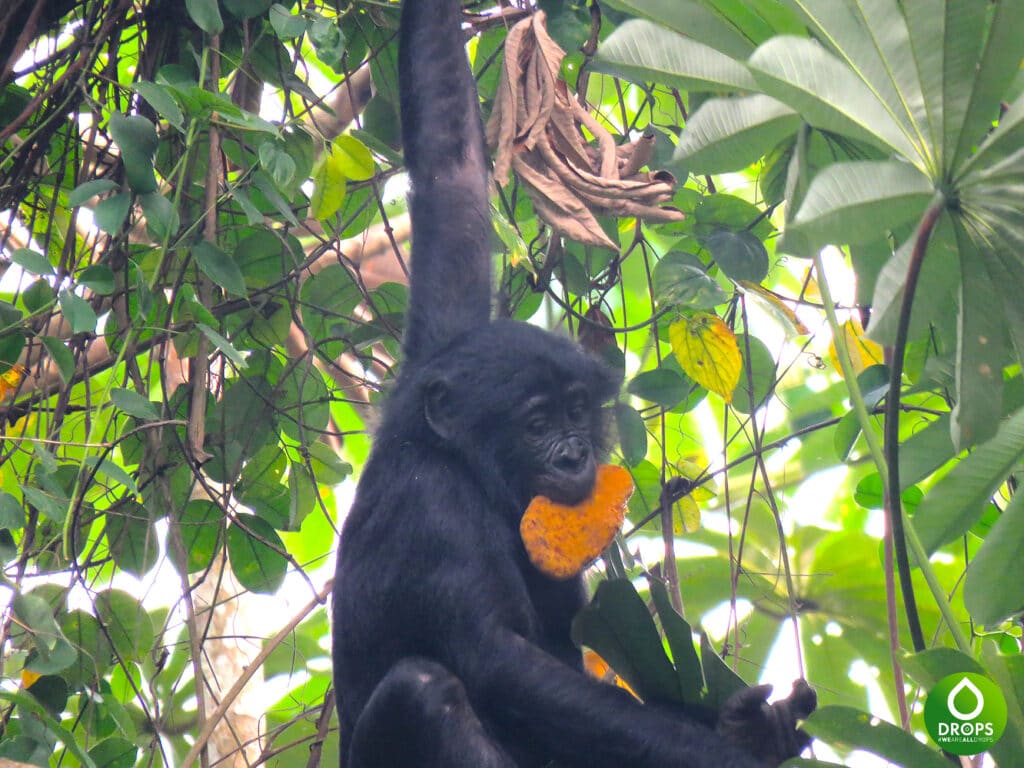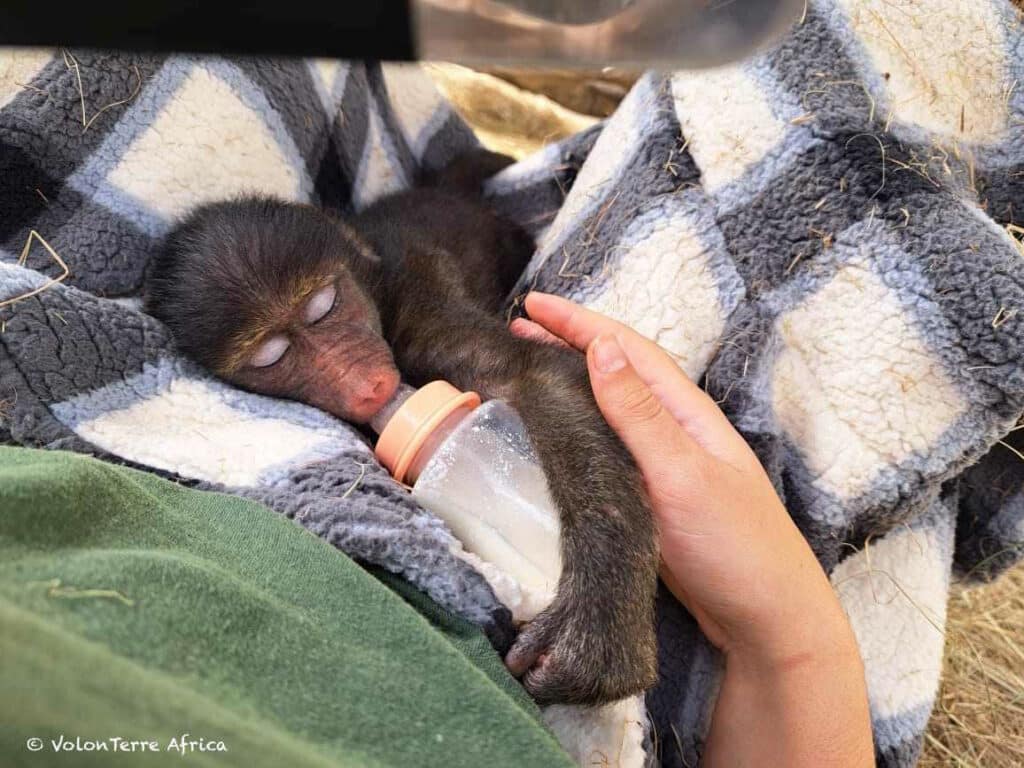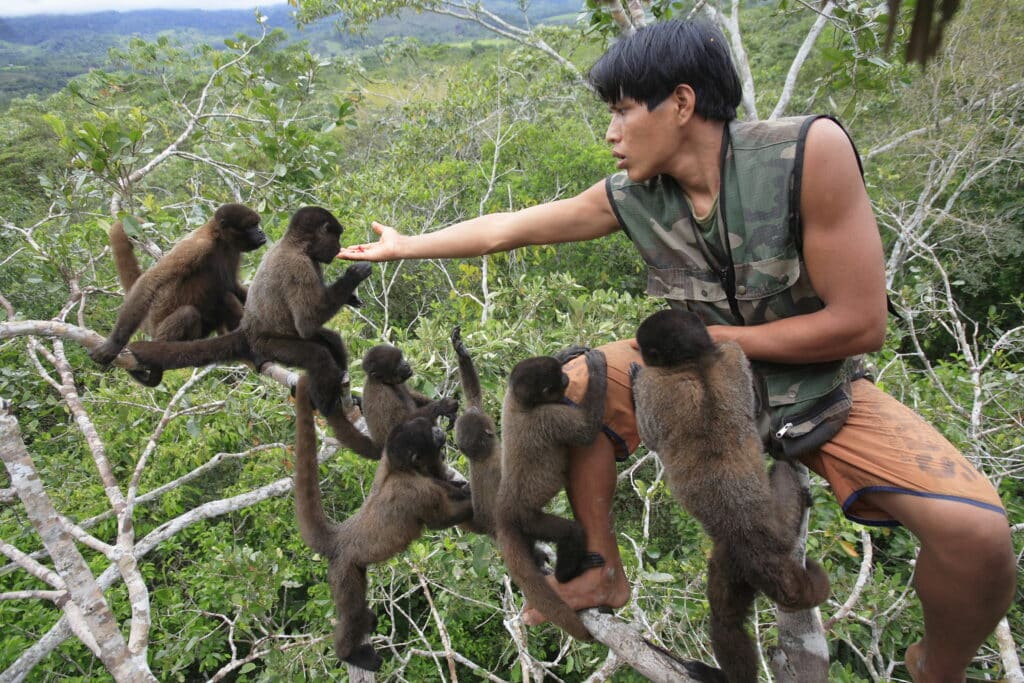Protect chimpanzees at a sanctuary in Zambia. Get involved in one of the world's largest and oldest chimpanzee sanctuaries. All programs with primates here.
The world's oldest chimpanzee sanctuary
Our partner Chimfunshi Wildlife Orphanage Trust (CWOT) is one of the world's oldest and largest chimpanzee sanctuaries. Covering 10,000 hectares of Miombo forest, the sanctuary's mission is to protect and care for chimpanzees, while raising awareness of wildlife conservation among the local population. In addition to being a chimpanzee sanctuary, Chimfunshi is home to a wide variety of animals, particularly birds, with over 300 species.
Numerous projects have been set up to promote and communicate the importance of biodiversity conservation in the region.
Improving the lives of local communities
Our partner's project has an important social component, to improve the lives of workers and local communities. To this end, in partnership with the government, CWOT is actively involved in setting up and financing the Twampane school, as well as the local dispensary, which welcomes all members of the community free of charge. CWOT has also developed sustainable agriculture to provide organic fruit and vegetables for the community and its chimpanzees. Thus, by combining wildlife protection and community development, CWOT is working towards a sustainable future where biodiversity and the well-being of local populations go hand in hand.
The role of volunteers in the Chimpanzee sanctuary
The volunteer program provides human and financial assistance in animal care, education and sustainable agriculture, while fostering a deeper understanding of wildlife conservation and cultural immersion. Volunteers play an important role in various aspects of the projects. Volunteers are essential to the day-to-day operations and long-term goals of the NGO.
Chimpanzee protection and rehabilitation
Activities related to chimpanzee protection can include:
- Feeding and cleaning the pens
- Population monitoring, often including behavioral data collection
- Participation in the design of chimpanzee enrichments
Educational projects
You can be integrated into numerous projects, such as :
- Development of educational programs for local communities and children
- Raising awareness
- Training, music, art or sports courses
Development of sustainable agriculture
This may include agricultural tasks such as :
- Planting, harvesting or irrigation
- Development of new projects
Dates
- All year round: however, the rainy season is more physically demanding, from December to March.
- 1 week minimum
Rates
- 275 USD per week, or around €261.
Restoration options :
- 50 USD or about €48 per week for one meal per day.
- 100 USD or about €95 per week for two meals a day.
- 125 USD or around €119 per week for three meals a day. Volunteers can also choose to prepare their own meals using the shared kitchen facilities.
- 280 USD (approx. €266) for transport (return) Chimfunshi Wildlife Orphanage Ndola Airport
Prices in euros vary according to the exchange rate
- From age 18 alone or 15 accompanied by a legal guardian.
- Level of autonomy: volunteers must be able to carry out their own projects and work independently, while respecting the sanctuary's rules.
- Physical condition: Good physical condition is required. Volunteers will be expected to walk or cycle 4 to 8 km to their place of work on unpaved paths.
- Language level: an average level of English is desirable to facilitate communication, although the volunteer coordinator and Animal Care Manager are French speakers.
- Application process: candidates must complete an application form, send a CV translated into English, a letter of motivation, and for long internships, two letters of recommendation. Once the application has been accepted, a health test, including an HIV and tuberculosis test, as well as proof of vaccination, will be required.
Housing
Volunteers are accommodated in shared houses, with rudimentary but clean and safe facilities. Shared rooms and bathrooms are available. There is drinking water and electricity on site, but the sanctuary is in a remote area with its own mains supply. It is therefore important to be careful not to overuse these resources.
Food
Volunteers can choose from full-board options or cook for themselves. Local supermarkets and markets are accessible once a week for shopping.
Arrival
Airport pick-up: a transfer service is available from Ndola airport, to be arranged in advance to facilitate your arrival.
Security
It's a good idea to keep valuables in a safe place, and always pay attention to your surroundings.
Visa
For people from the European Union, a tourist visa can be requested on arrival at the airport, free of charge, and is valid for 30 days, renewable twice free of charge for a total of 90 days.
Volunteers will have the chance to enjoy a variety of activities in their free time, including
- Canoeing on the Kafue: explore the river by canoe, offering magnificent scenery and wildlife-watching opportunities.
- Birdwatching: access to birdwatching sites to discover the region's rich avian biodiversity.
- Visit local markets: take part in the Musenga Market to discover fresh, local produce and handcrafted souvenirs.
- Excursions: visit Mutenda Falls for days of swimming and exploring, or Nsobe Game Camp for a safari experience.
- You enter the world's largest and oldest chimpanzee sanctuary.
- Expand your knowledge of chimpanzees
- Discover the culture of Zambia
- You'll visit a magnificent region

About the partner
Founded in 1983 by David and Sheila Siddle, Chimfunshi Wildlife Orphanage Trust (CWOT) aims to protect and care for chimpanzees, while raising local awareness of wildlife conservation. Many of the chimpanzees taken in come from illegal trade and private owners. They recover these animals through the competent authorities and provide them with a new habitat, which approximates their living conditions in the wild. Chimfunshi chimpanzees live in family groups in large enclosures, with access to care facilities.

